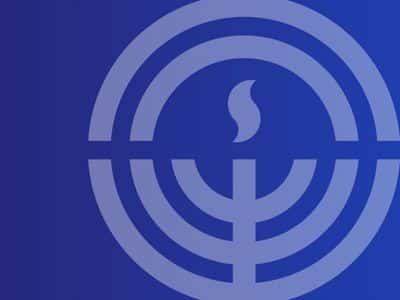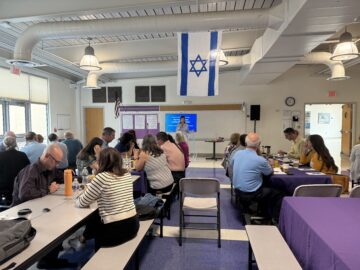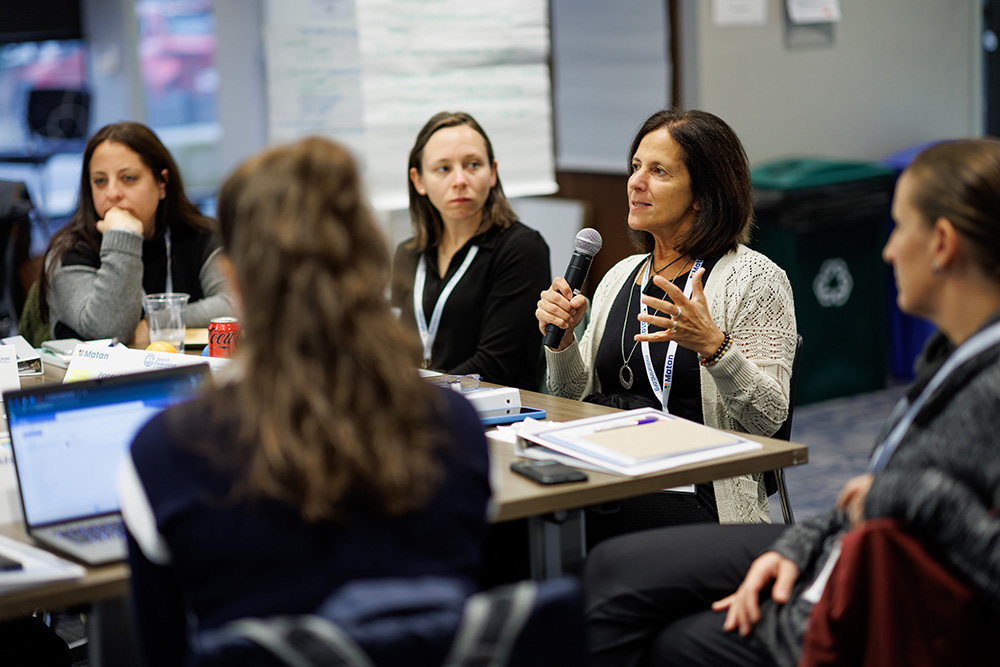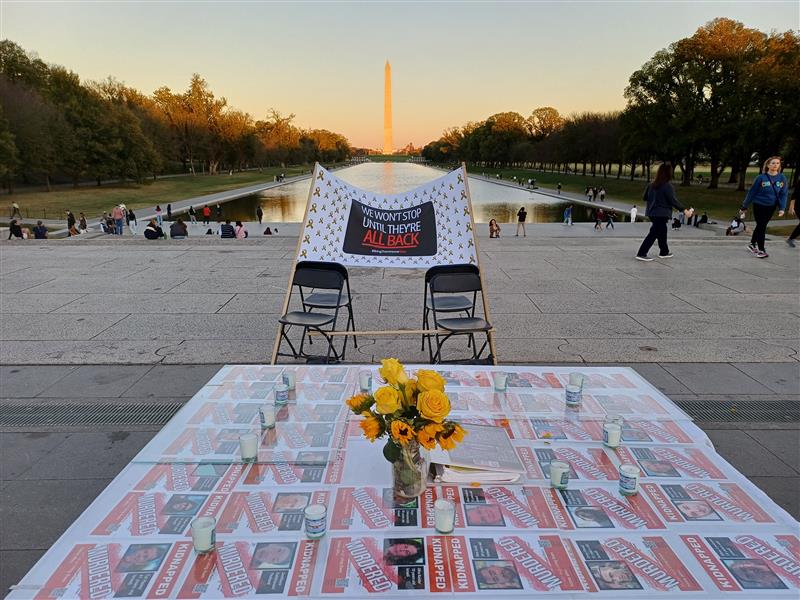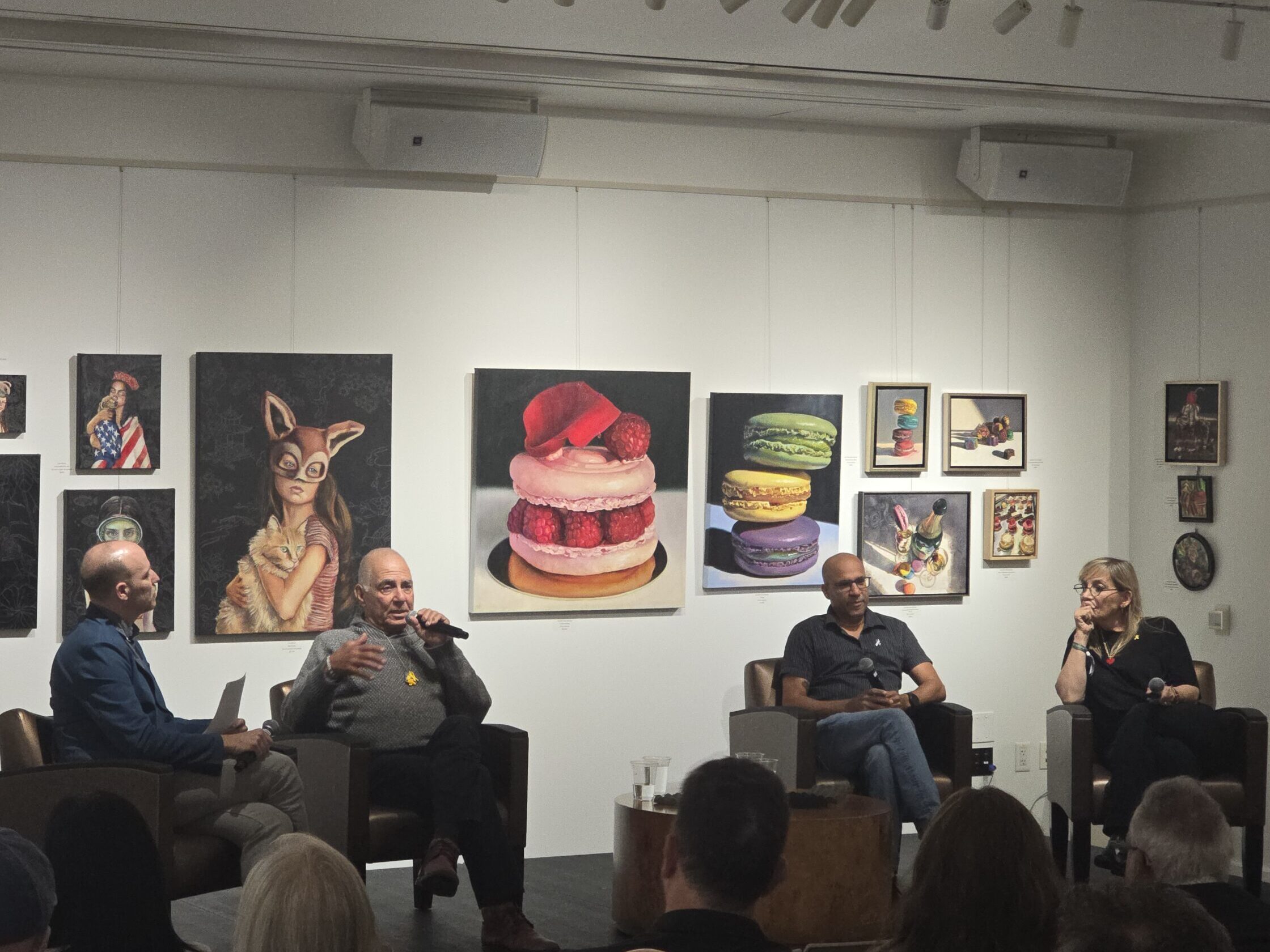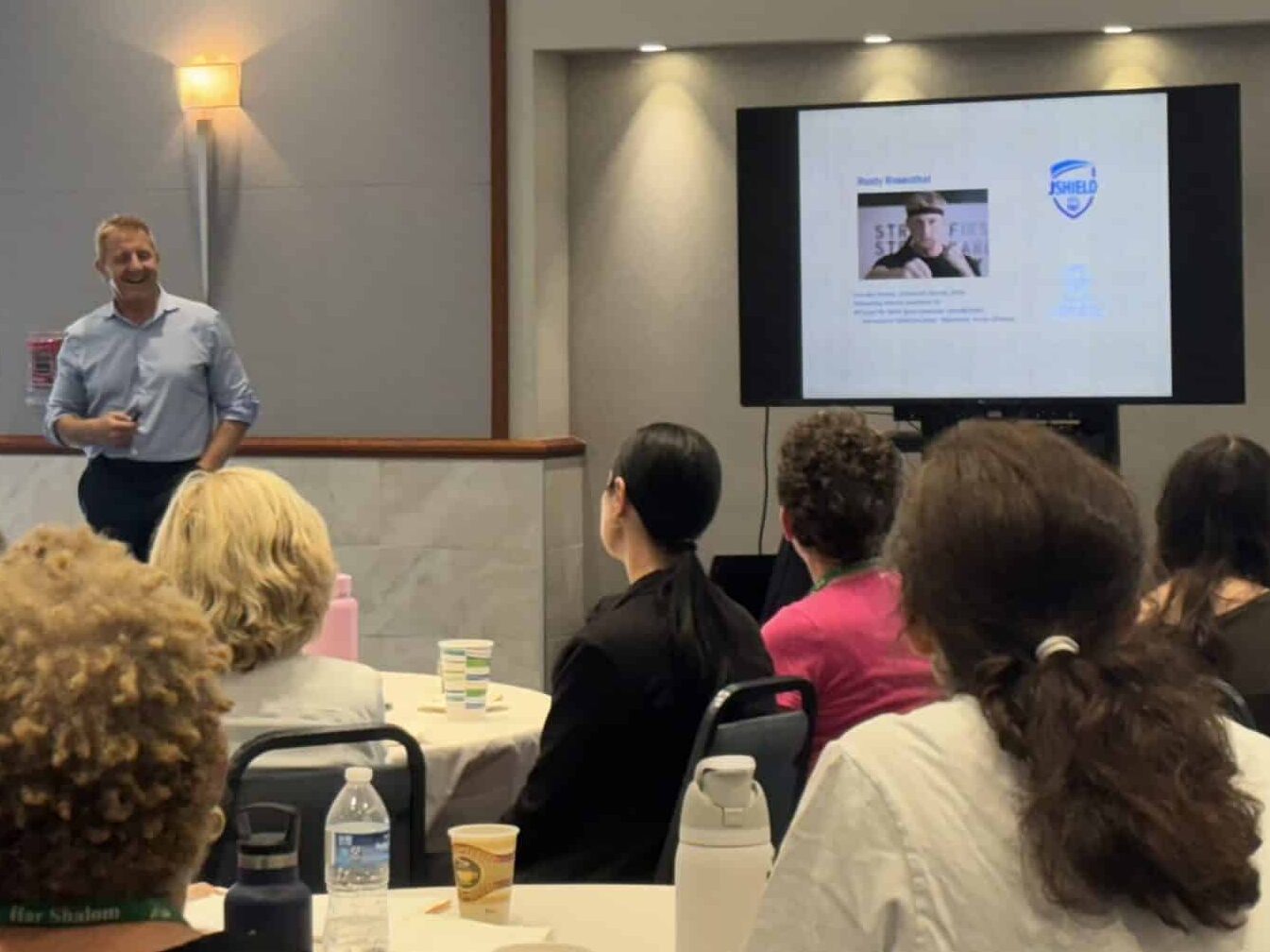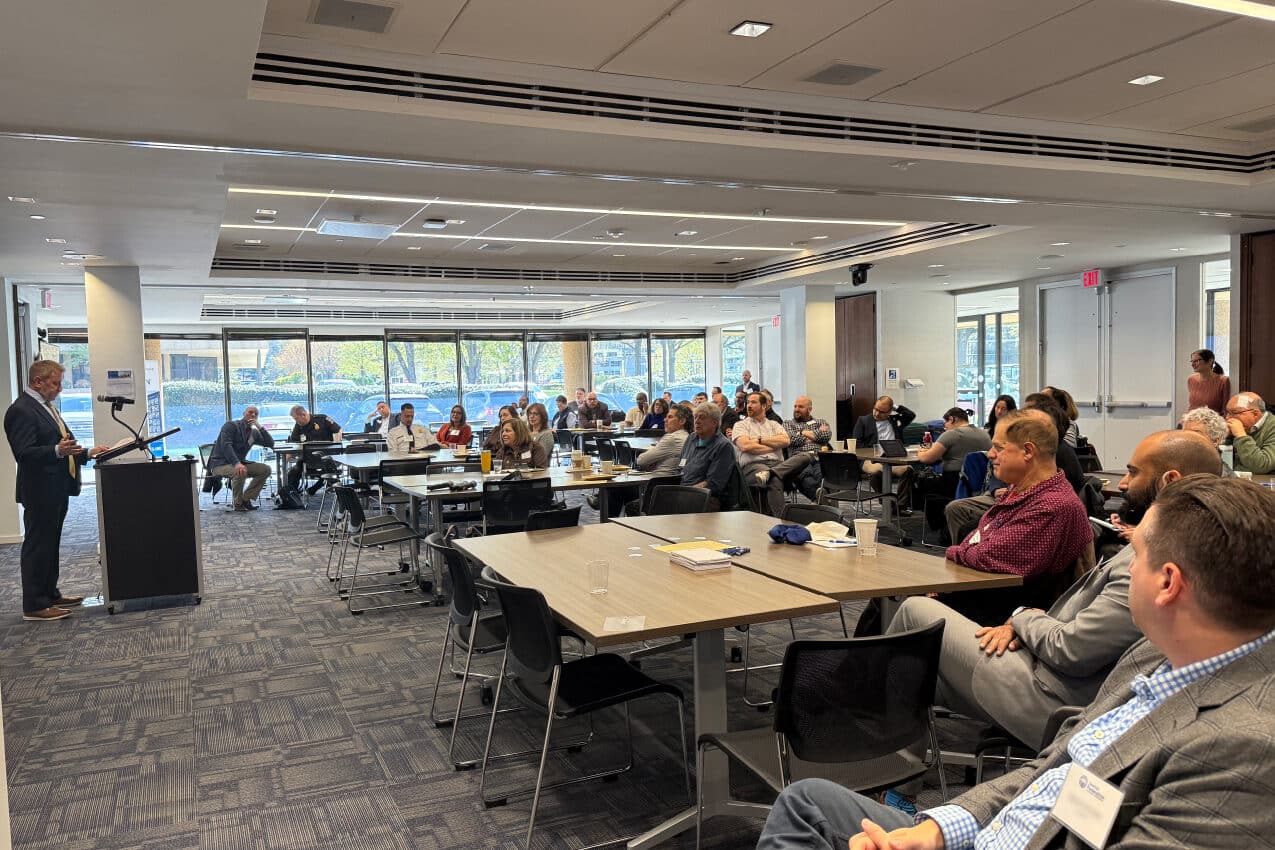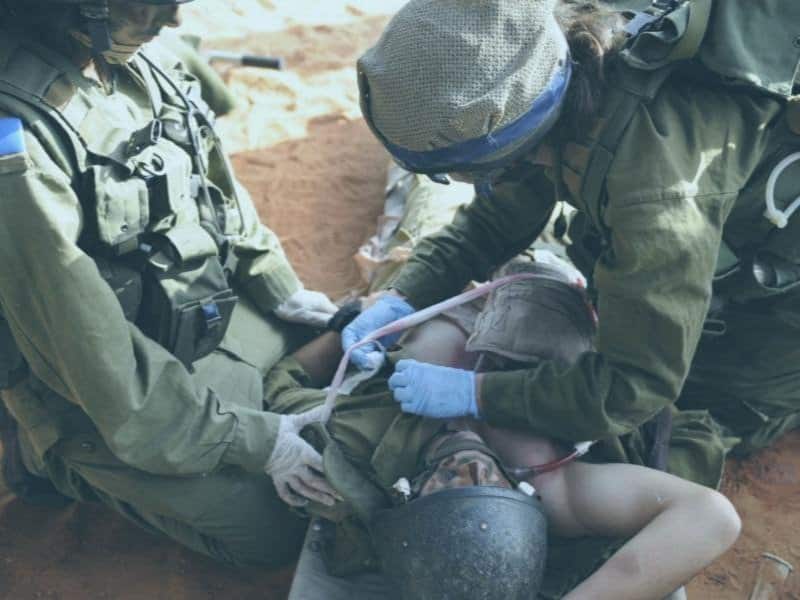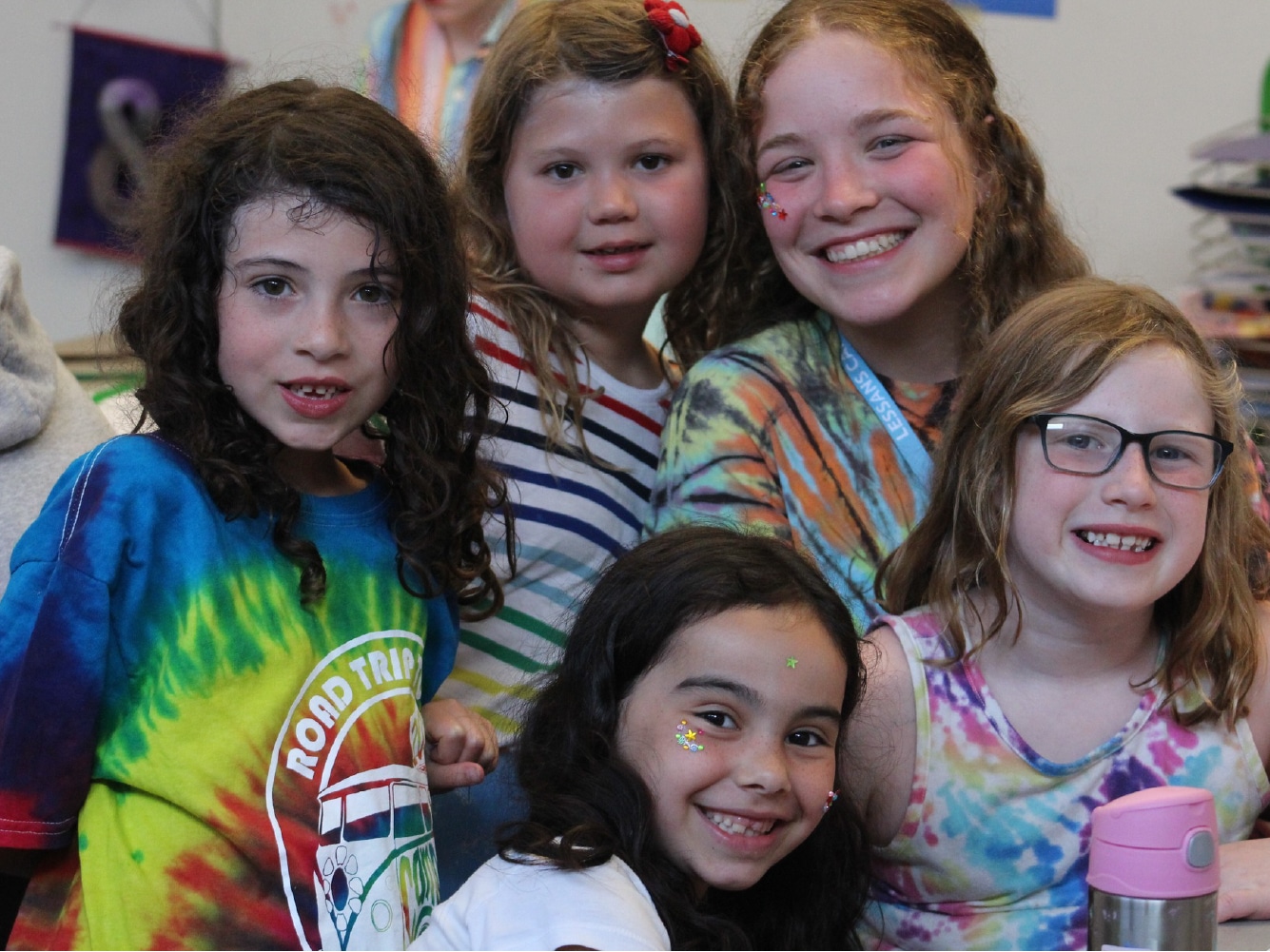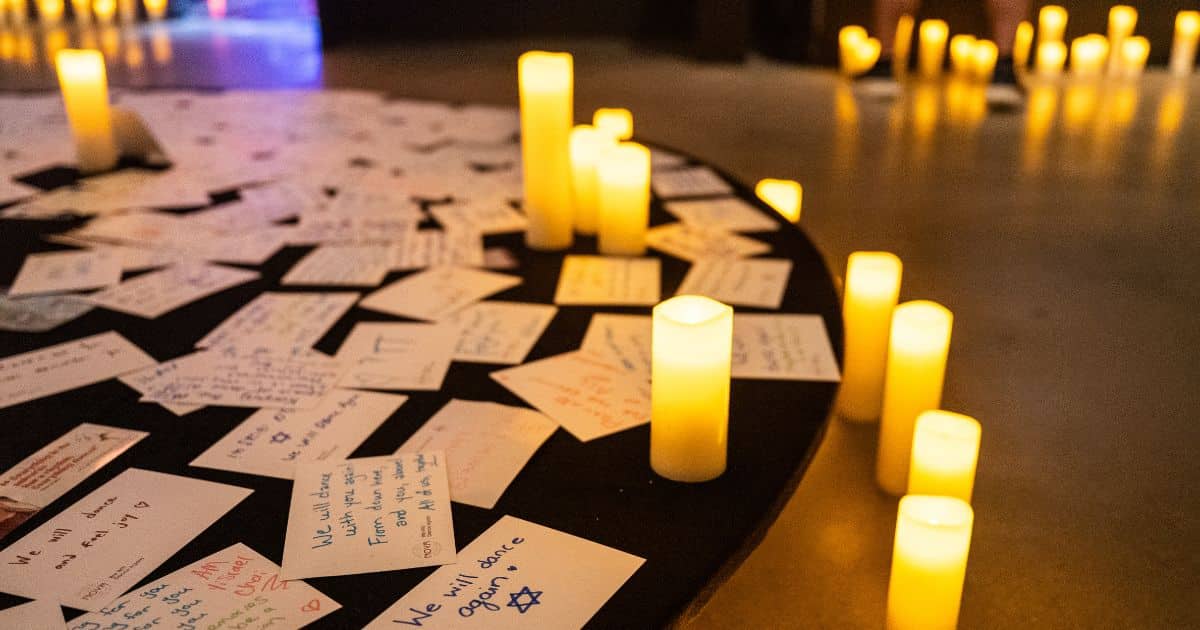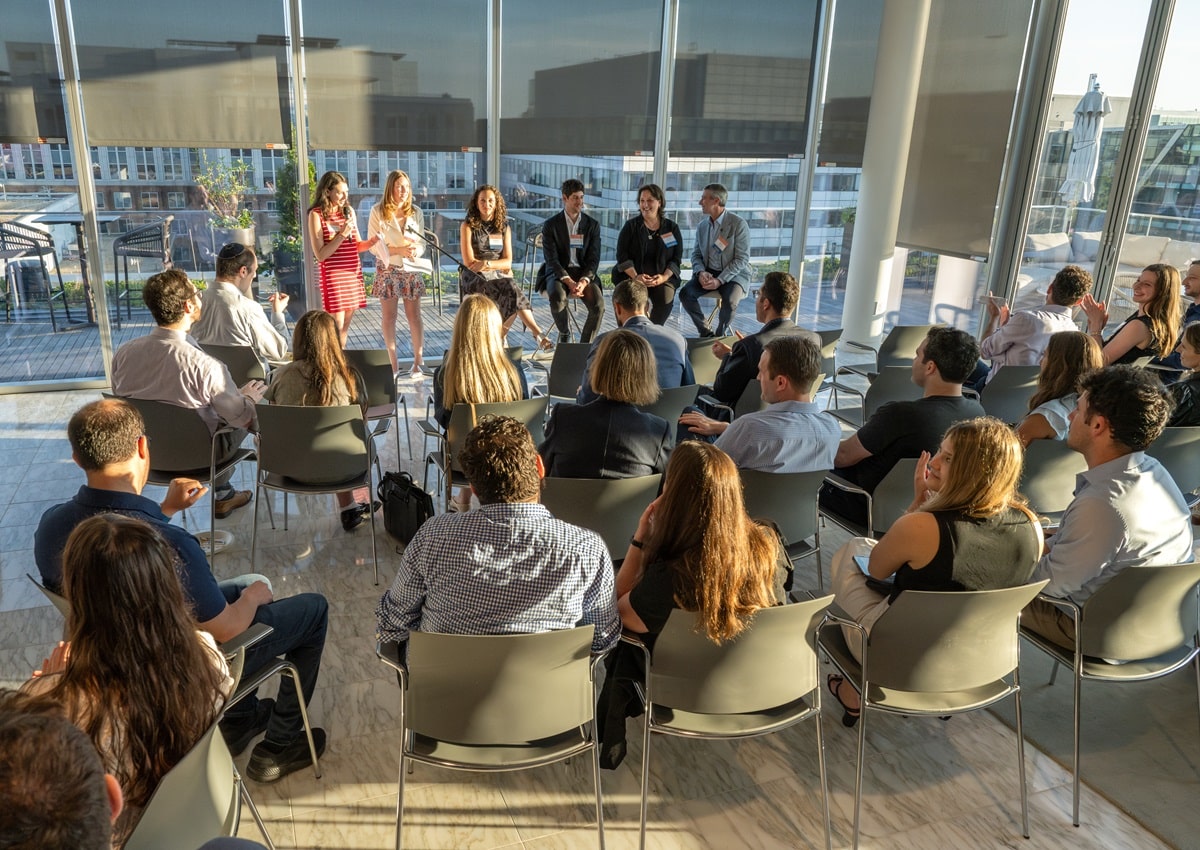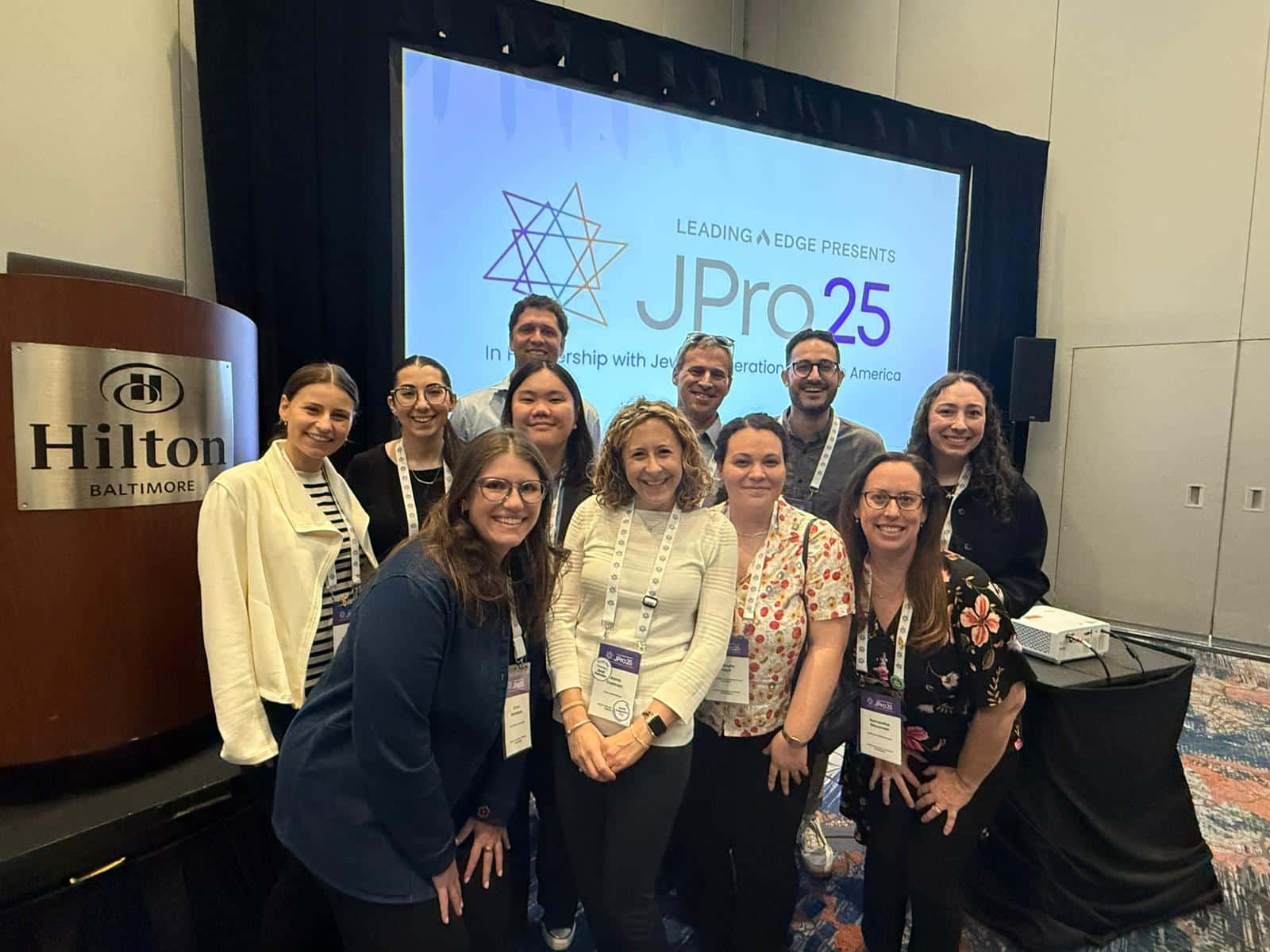L’Chaim: The Power of Showing Up Together
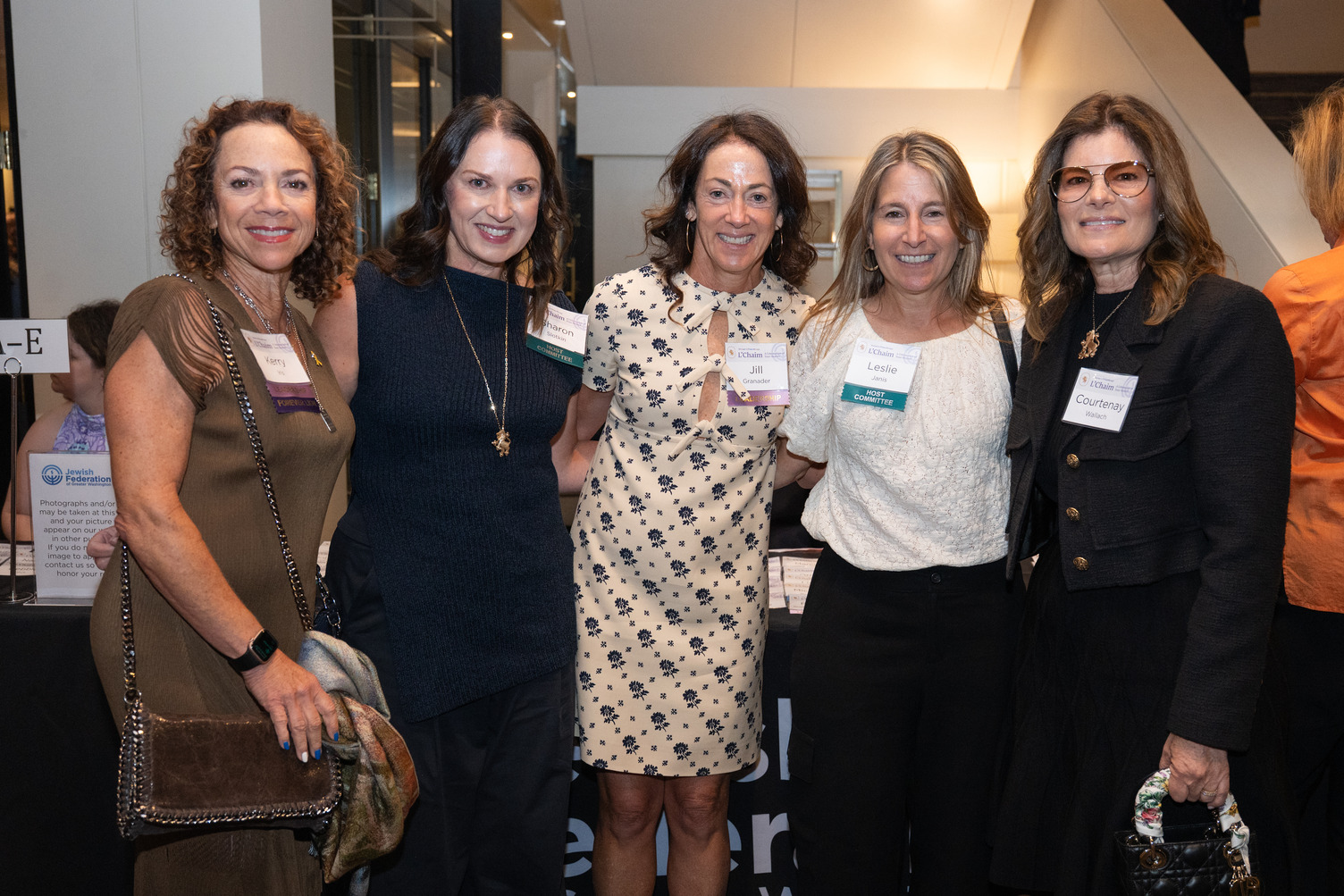
When Women’s Philanthropy set out to create a signature gathering for the Lions of Judah community, the goal was simple but ambitious: to build something that felt both celebratory and essential. A space to honor stories. A moment to deepen connections. A tradition worth beginning.
Held at the Four Seasons in Georgetown, this inaugural event on Monday, September 15, brought together more than 150 women for a morning of inspiration, reflection, and connection. More than a brunch, L’Chaim was a powerful reminder of what happens when women gather with intention. When leadership meets legacy. When stories are shared freely, and futures are shaped collectively.
From Welcome to Why
You could feel it immediately. It was a celebration of shared values, lived leadership, and the power of women’s philanthropy to shape our community.
Co-Chairs Yvonne Schlafstein Distenfeld and Irene Sherman set the tone: this wasn’t a day to sit back—it was a day to reflect, to honor, to energize.
Yvonne shared:
“There’s something truly powerful about bringing so many women together in one room—it’s inspiring every time. I’m in awe of the energy, strength, and spirit of being surrounded by such extraordinary women!”
Stories That Moved Us
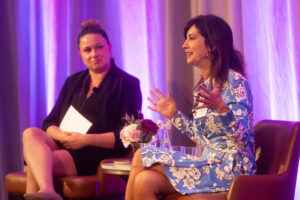 Wendy Sachs, our guest speaker, took the stage with a lens into her world and her work as director and producer of the documentary, October 8, and her view of what it means to be a woman showing up in today’s world. Her stories didn’t just highlight antisemitism, they challenged us to consider how we use our voices, our resources, our courage.
Wendy Sachs, our guest speaker, took the stage with a lens into her world and her work as director and producer of the documentary, October 8, and her view of what it means to be a woman showing up in today’s world. Her stories didn’t just highlight antisemitism, they challenged us to consider how we use our voices, our resources, our courage.
Her message resonated deeply with the room. One Lion said:
“Wendy Sachs was so eloquent and inspiring and I loved hearing her speak. I was impressed how she talked about her audience being a global one (which we certainly need).”
Another Lion added:
“Wasn’t Wendy Sachs amazing? She was just as engaging and interesting as she could be.”
A Story Close to Home
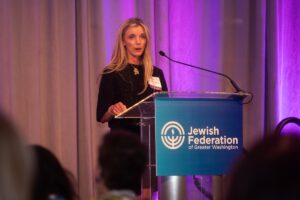 Among the most moving moments of the morning came when Marianna Ashin, Lion of Judah Chair, stood to share her personal journey—from a young refugee arriving in the U.S. to a proud Jewish leader helping others write their own Federation stories.
Among the most moving moments of the morning came when Marianna Ashin, Lion of Judah Chair, stood to share her personal journey—from a young refugee arriving in the U.S. to a proud Jewish leader helping others write their own Federation stories.
Marianna spoke of leaving everything behind in 1989; her home, her extended family, and her familiar world in Kyiv. She recalled standing on a train platform with her parents and brother, holding only a pair of suitcases and an unwavering sense of Jewish identity.
“While we may have made a leap of faith by getting on that plane,” she said, “Federation was there to catch us when we landed at JFK.”
The room was quiet as she described how Federation gave her family not just resources, but dignity: language classes, job support, school supplies, summer camp. A kitchen full of groceries. A Jewish home in a new land.
“The Jewish Federation didn’t just help us get by. You helped us imagine what could come next, and gave us the tools to pursue.”
Her story reminded everyone in the room exactly why their giving matters.
“Without Jewish Federation. Without you. I am not here—standing in front of you. Sharing my story.”
The Strength in the Room
What made the morning unforgettable wasn’t just the speakers or the setting; it was the women who filled the room. Each one carrying a legacy of giving, each one committed to community.
“It was fun to connect with old friends and also meet new ones,” said one Lion. “What a spectacular event!”
Another reflected on what made the gathering so meaningful:
“I am so glad I came today! It was a beautiful event, and I learned so much from the stories that the women told.”
A Moment, A Movement
L’Chaim was about the quiet confidence that comes from standing shoulder to shoulder with women who believe in tikkun olam, repairing the world, and who act on that belief every day.
“This event was a huge success,” one Lion shared. “It has all the markings of a program to have every year before the holidays.”
Thank You
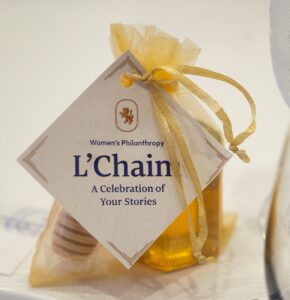 To all who joined us, thank you. Your stories enriched the fabric of our community. And your leadership, quiet or bold, helps move Jewish Greater Washington forward.
To all who joined us, thank you. Your stories enriched the fabric of our community. And your leadership, quiet or bold, helps move Jewish Greater Washington forward.
We are grateful to our host committee, our Women’s Philanthropy leaders, our Co-Chairs, and all who brought their time, energy, and commitment to this celebration.
If you’d like to learn more about the Lions of Judah giving society, please contact Becca Ginns at becca.ginns@shalomdc.org or (301) 230-7236.

